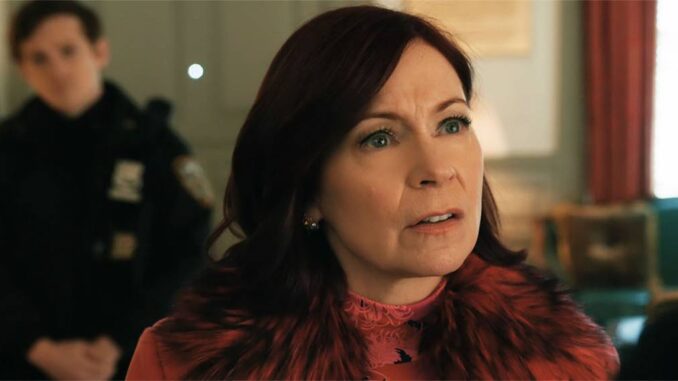
The Elsbeth Paradox: Potential Unfurled, Potential Fumbled, and the Urgency of Season 3
Elsbeth Tascioni, the brilliant but endearingly eccentric lawyer who first graced our screens in The Good Wife and The Good Fight, finally has her own spotlight in the aptly named Elsbeth. The series premise, placing her in the heart of New York City as an NYPD consultant, promises a delightful clash of cultures: the cerebral, unconventional Elsbeth navigating the gritty, procedural world of crime investigation. However, Elsbeth, while charming and often cleverly plotted, suffers from an annoying inconsistency in its portrayal of its titular character, hindering it from truly capitalizing on its secret advantage: Elsbeth’s seeming obliviousness acting as a mask for keen observation and sharp intellect. Season 3 must address this inconsistency if the show is to fulfill its potential and avoid becoming a predictable, albeit quirky, procedural.
Elsbeth’s secret advantage lies in the disarming effect her perceived disorganization and tangential thinking have on those around her. People underestimate her, dismissing her digressions as mere rambling, which allows her to observe their true behavior and motivations without raising suspicion. She’s a master of misdirection, appearing to focus on trivial details while subtly piecing together crucial clues. This advantage is evident in moments of genuine brilliance, where her seemingly random thoughts suddenly coalesce into a startling revelation, leaving the culprit – and the audience – stunned. In these moments, Elsbeth captures the essence of a true “Columbo”-esque detective, a figure who appears harmless but possesses an unparalleled ability to unravel complex mysteries.
However, the show frequently undermines this brilliance with moments that feel forced and contrived. Instead of allowing Elsbeth’s eccentricities to organically contribute to her investigations, the writers often resort to exaggerating her quirks for comedic effect. She becomes less a shrewd observer and more a caricature, a walking, talking collection of odd habits and non sequiturs. This inconsistency manifests in scenes where her behavior feels unnecessarily disruptive or her questions border on the absurd, lacking any logical connection to the case at hand. These moments, while intended to be humorous, often diminish her intelligence and make her contributions feel less insightful and more accidental.
The problem is not that Elsbeth is quirky; it’s that her quirks are sometimes used as a crutch, a substitute for genuine detective work. Instead of building intricate puzzles that Elsbeth unravels through her unique perspective, the show occasionally relies on her simply stumbling upon clues due to her sheer unpredictability. This undermines the satisfying intellectual payoff that should be at the core of each episode. It’s like watching a magician who pulls rabbits out of thin air instead of meticulously crafting an illusion. The trick is impressive, but it lacks the artistry and complexity that makes magic truly captivating.
Season 3 needs to address this inconsistency by delving deeper into Elsbeth’s internal world. We need to understand not just what she does, but why she does it. By providing glimpses into her thought process, the show can bridge the gap between her eccentric behavior and her insightful deductions. We need to see the logical connections behind her apparent tangents, the method to her madness. This requires a more nuanced and deliberate approach to writing her character, one that prioritizes her intelligence and observational skills over cheap laughs.
Furthermore, the show needs to be more consistent in showcasing the impact of Elsbeth’s approach on the people she interacts with. We need to see how her disarming persona allows her to elicit information that would otherwise be hidden, how her unconventional questions throw suspects off balance, and how her unexpected insights lead to breakthroughs in seemingly unsolvable cases. By highlighting these consequences, the show can reinforce the effectiveness of her strategy and solidify her position as a formidable, albeit unconventional, detective.
Ultimately, Elsbeth has the potential to be more than just a quirky procedural. It has the opportunity to be a genuinely insightful exploration of human behavior and the power of observation. By addressing the inconsistency in its portrayal of its titular character and by focusing on the strategic brilliance behind her eccentricities, Season 3 can unlock the full potential of Elsbeth’s secret advantage and deliver a truly captivating and intellectually stimulating viewing experience. Only then will Elsbeth truly shine, transforming from a charming distraction into a compelling and thought-provoking crime drama.
